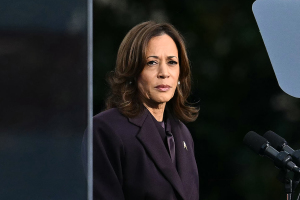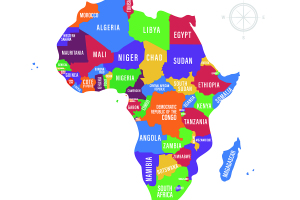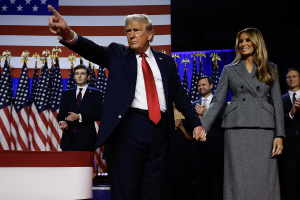Obama Actions Show More 'Flaccidity' Than Flexibility
President Obama's whispers to Russia's then-President Dmitri Medvedev were picked up on a hot microphone. "This is my last election," the president confided to the Russian under his breath, "after my election, I'll have more flexibility." ABC's Jake Tapper reported that exchange in March 2012, at a G-20 Summit in Seoul, South Korea.
It remains one of the most shocking incidents in the history of U.S.-Russian relations. Medvedev quickly chimes in to say: "I understand." And he promised to carry the President's words to Russia's real strong man, Vladimir Putin.
What President Obama calls "flexibility" soon translated into flaccidity. The Russians have always been sensitive to weakness in their opponents. Nikita Khrushchev bullied the young, inexperienced Jack Kennedy at Geneva, in 1961. Kennedy would later tell associates, candidly, that Khrushchev "beat the hell out of me." Seizing the initiative, Khrushchev soon erected the Berlin Wall and took the alarming step of placing Intermediate Range Ballistic Missiles in Cuba. Kennedy had to bring America and the world to the brink of nuclear war to re-establish American leadership.
President Obama, from his first days in office, has pressed all the wrong buttons in relations with the Russians. First, there was Sec. of State Hillary Clinton's horrible gaffe of presenting Foreign Minister Sergei Lavrov with a red, plastic "re-set" button. During that March 2009, Geneva meeting, Hillary's button spelled the Russian word for re-set wrong. And it was not even rendered in the Russia's Cyrillic alphabet. Hillary's manic cackle can still be heard on the Internet.
"You got it wrong," says the unsmiling top Russian diplomat, but the U.S. media gave Madame Secretary a pass. What difference does it make, after all? We will learn, sadly, that it makes a lot of difference.
Then, President Obama went ahead with his "Hamburger Summit" with Medvedev in Northern Virginia in June 2010. Again, the besotted U.S. media gushed about how historic this meeting was. Mr. Obama went ahead with his meal of cheeseburgers and fries even though the FBI was on the eve of nabbing ten Russian spies busily burrowing into America's few remaining secrets. Those Russian spies were given a first class ticket back to Moscow. They didn't even have to endure a TSA pat down. Press accounts say the two leaders shared the French fries, but actually, Medvedev ate Mr. Obama's lunch that time. The President was said to be unhappy about the "timing" if the spies' capture. But not about the spying?
Of course, Russian spies don't have to work as hard these days as in the past. That's because President Obama blurted out "5,113." That's the number of nuclear warheads in the U.S. arsenal, he leaked. He still has not provided a rationale for so needlessly exposing to a host of potential enemies such important classified information.
For advice on dealing with Russians, President Obama could always turn to his Vice President, Joe Biden. Biden spent nearly forty years in the Senate. As a member of the Foreign Relations Committee, Biden went to Moscow in 1979, teamed with Indiana's GOP Sen. Dick Lugar. In the Kremlin, this dynamic duo managed to convince Communist boss Leonid Brezhnev and KGB head Yuri Andropov that the U.S. didn't care very much about human rights. What we really wanted was arms control.
As a result, the U.S. had to wait another decade before a stronger President, Ronald Reagan, could achieve genuine arms reduction. And thousands of dissidents in the USSR-Jews and Christians-were thrown into the Gulag.
We know that President Obama has contempt for Winston Churchill. He pitched the bust of Churchill out of the Oval Office into the snow in his first weeks in office. But Churchill knew how to deal with the Russians:
"I cannot forecast to you the action of Russia. It is a riddle, wrapped in a mystery, inside an enigma; but perhaps there is a key. That key is Russian national interest."
This administration is writing its own chapter in the book of Russian-American relations. It understands neither Russian national interests, or our own. When that chapter is complete, it will reveal a lamentable story of missteps and misjudgments. And of the United States under Barack Obama's leadership throwing away its historic victory in the Cold War. The chapter title could well read: "More Flaccidity."




























